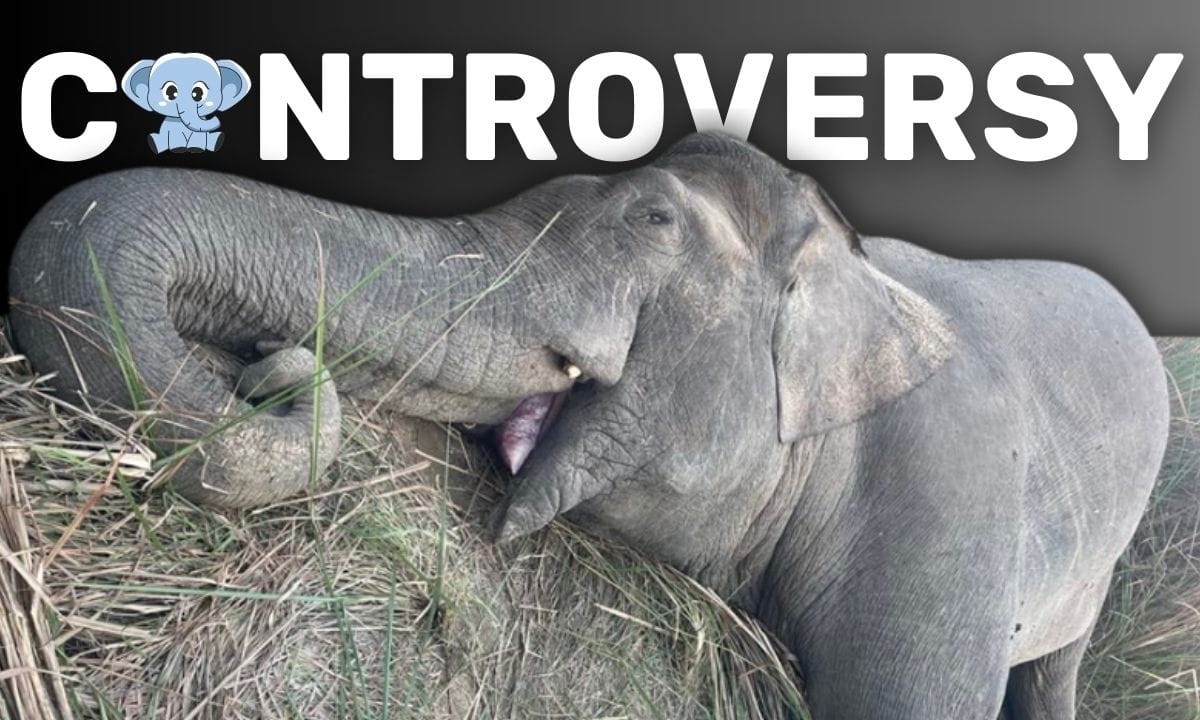A wild elephant named Makuna was shot and killed. According to Chitwan National Park, six rounds of bullets were fired at the elephant. But why was such a brutal act committed?
The park officials have a prepared response: “We were compelled to fire for self-defense. Makuna died after being shot.“
However, animal rights activists are not convinced. They argue that the killing of a wild elephant in such a manner is not an ordinary crime. A campaign titled “Justice for Makuna” has been launched on social media.
Former journalist Prabhat Rimal wrote, “The renowned brave Gorkhalis of the Third World have shot and killed an unarmed elephant. Wow! What bravery!”
Suranjan Shrestha, a young activist based in Chitwan who advocates for the welfare of animals, expressed his grief over Makuna’s death. He wrote, “Rest in peace, Makuna! But don’t go to heaven yet. Reside within our souls, be our strength. We still have many battles to fight together. We must break the chains that humanity has imposed on thousands of elephants like you.”
The Incident
Last Wednesday afternoon, about half a dozen officials from Chitwan National Park and soldiers from the Nepalese Army set out into the jungle on elephants. According to park officials, their mission was to drive Makuna into the deeper areas of the park.
During this operation, Makuna allegedly attempted to attack another elephant named Chure Gaj. To scare it away, the officials fired two rounds into the air. However, Makuna did not flee.
During the chaos, ranger Shyam Tamang, who was riding another elephant named Khagendra Prasad, fell off. To rescue him, three more warning shots were fired, causing Makuna to retreat a short distance. But soon, the elephant returned.
At that moment, one more round was fired, and at around 1:30 PM, Makuna collapsed. Two hours later, a veterinary team declared the elephant dead.
Unanswered Questions
This is the official statement from the park: “We fired in self-defense under a compelled situation.” However, conservationists question why they ventured into the wild with such preparation in the first place. Why was there a need to drive Makuna away?
Animal Nepal released a statement strongly condemning the killing:
“This incident once again proves that human activities are increasing conflicts between wildlife and people. However, the blame is always placed on the animals, and they end up being killed.”
“Wild elephants do not enter human settlements on their own. They are primarily attracted by captive female elephants used for tourism and patrolling. Keeping these captive elephants in unnatural conditions disturbs the natural behavior of wild elephants. Yet, instead of addressing the root cause, the solution always seems to be killing the animals.”
Aviril Bhandari wrote, “A tragic incident. The so-called conservationists themselves have taken Makuna’s life. First, they enter the water and kill crocodiles. Then, they enter the jungle and kill elephants. As for entering Singha Durbar and oppressing the people, I won’t say much.”
Suranjan Shrestha believes getting a clear answer as to why Makuna was shot will be difficult. He wrote, “No matter what is said, I doubt the park administration will be able to provide a satisfying answer. If they do, it would only prove that while they may not be competent in conservation, they certainly know how to manipulate words to cover up their mistakes.”
“Claiming to protect elephants while riding on them, using them to attack, chase, and harm other wildlife—this is not justifiable.”
One social media user emotionally recalled their encounter with Makuna: “Makuna, I have met you multiple times. But you did not fit in this world of so-called intelligent humans. I am devastated by the news of your killing. I will continue to visit your land. Your story and memories will live on in my phone. May you be reborn with wings and the freedom to roam as you wish. Farewell, Makuna.”
Makuna first appeared in the Sauraha area of Chitwan National Park last year. Although it entered human settlements, it never harmed any people.






